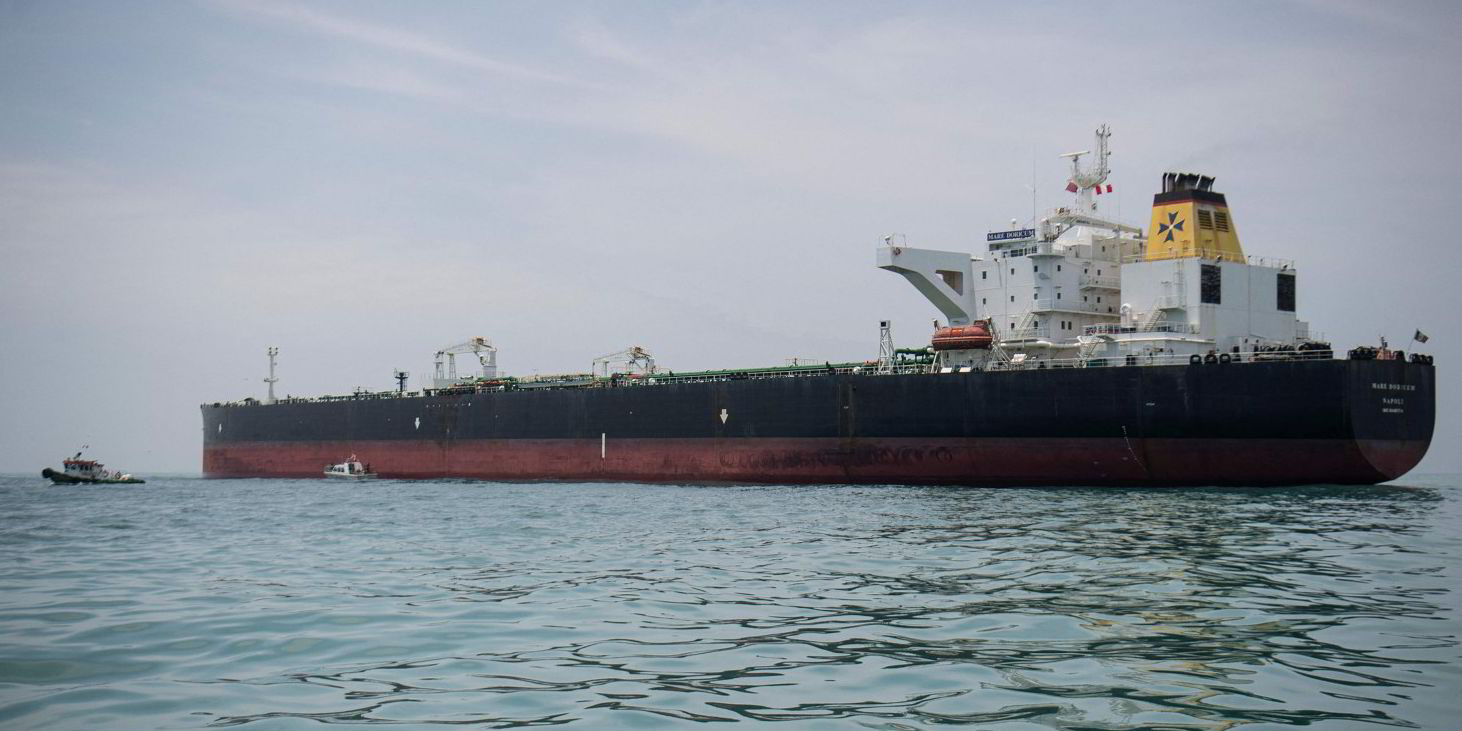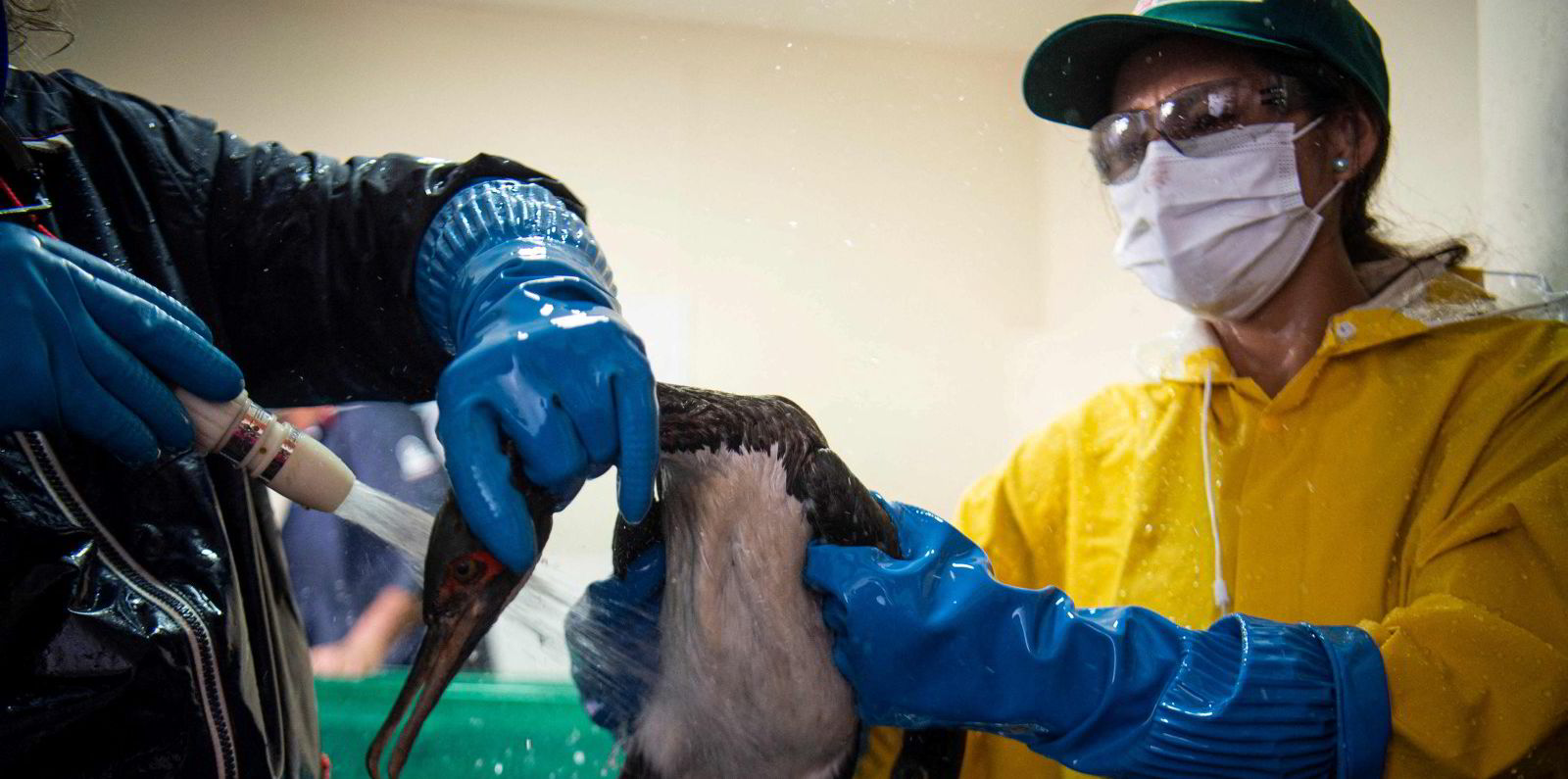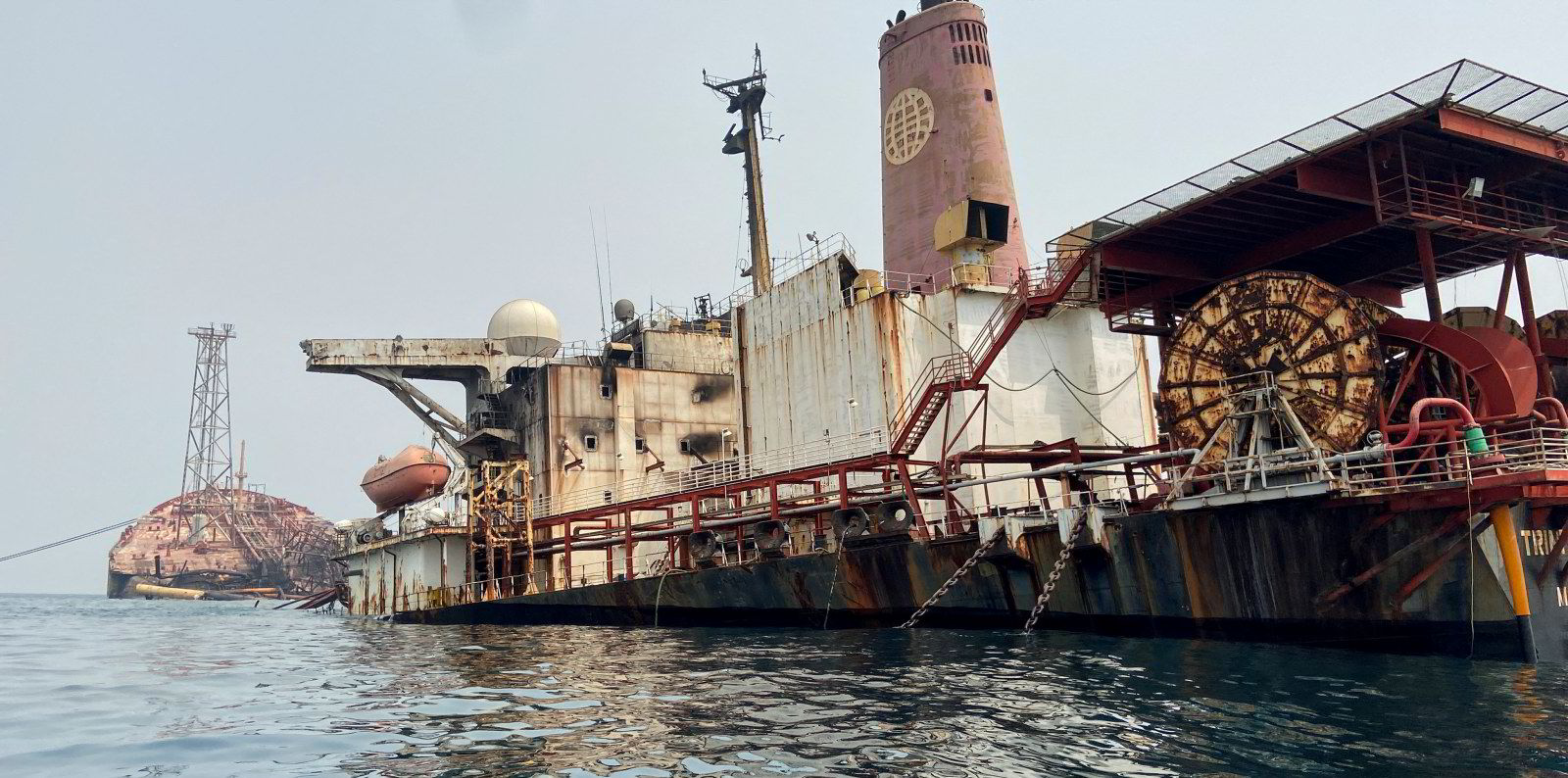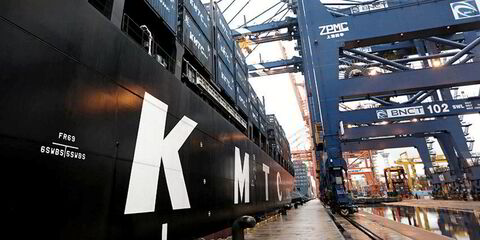Repsol has asserted a claim against a Fratelli d’Amico-owned vessel over an oil spill in Peru that has previously been blamed on a volcanic eruption from Tonga on the other side of the Pacific Ocean.
The Spanish oil company, which controls La Pampilla Refinery where the spill took place, said it had presented a claim to the Italian shipowner and its insurers.
Repsol said the claim “is the beginning of the process of coverage for the damages caused by the oil spill”.
It has blamed the accident on the 158,300-dwt Mare Doricum (built 2009), an Italy-flag vessel that has protection and indemnity insurance from the Standard Club.
“Investigations indicate that it was due to an uncontrolled movement of the vessel Mare Doricum while it was unloading crude at Terminal No 2 of La Pampilla Refinery,” Repsol said.
It has not disclosed the amount of the claim.
Fratelli d’Amico said in a statement provided to TradeWinds that the facts have yet to be established, as the investigation into the spill is continuing.
“Our assessment of the evidence to date is that all onboard protocols and procedures were followed by the vessel at the time of unloading and from the moment oil was observed in the water,” the shipowner said.
Repsol has faced the brunt of criticism for the spill, which involved more than 11,000 barrels and has dirtied beaches around Lima, Peru’s capital and most populous city.
The incident occurred on 15 January while the Mare Doricum was unloading a cargo of Brazilian crude. It was first blamed on waves that emanated from the huge eruption on Hunga Tonga–Hunga Haʻapai, an uninhabited volcanic island in the Tongan archipelago in the southern Pacific, about 9,800 km away.
The ship’s master, Captain Giacomo Pisani, wrote in documents on the day of the spill that the vessel experienced an “abnormal sea swell condition” that caused mooring lines to snap while the ship was discharging its cargo.
Name: Mare Doricum
Type: Crude tanker
Size: 158,319 dwt
Built: 2009
Owner: Fratelli d’Amico
Flag: Italy
Classification society: Rina
P&I insurer: Standard Club
But Repsol Peru chairman Jaime Fernandez-Cuesta has since challenged that narrative in testimony before a commission of Peru’s congress.
“Our position is that this rupture and this spill was caused by a sudden and anomalous movement of the vessel, something that should never happen,” he said, according to a translation supplied to TradeWinds.
“During the offloading operation, it has to be absolutely immobile and perfectly moored with the vessel’s own moorings to our buoys and with its anchors and its anchoring methods. [The tanker] moved more than 50 metres and this is what produced the spill. The vessel continued offloading for a few minutes after the rupture.”
Fratelli d’Amico has said the spill involved a leak from the terminal’s underwater pipeline, and it said the Mare Doricum’s crew halted cargo operations as soon as oil was spotted.

The day after the spill, Pisani’s letters made reference to allegations by a Repsol terminal representative complaining of movement by the vessel.
The master wrote that he rejected a letter of protest from the terminal because “the vessel didn’t move forward and never touched the marking buoy”.
The Mare Doricum remains anchored off the Peruvian coast after officials secured court approval to seize it pending the investigation.





